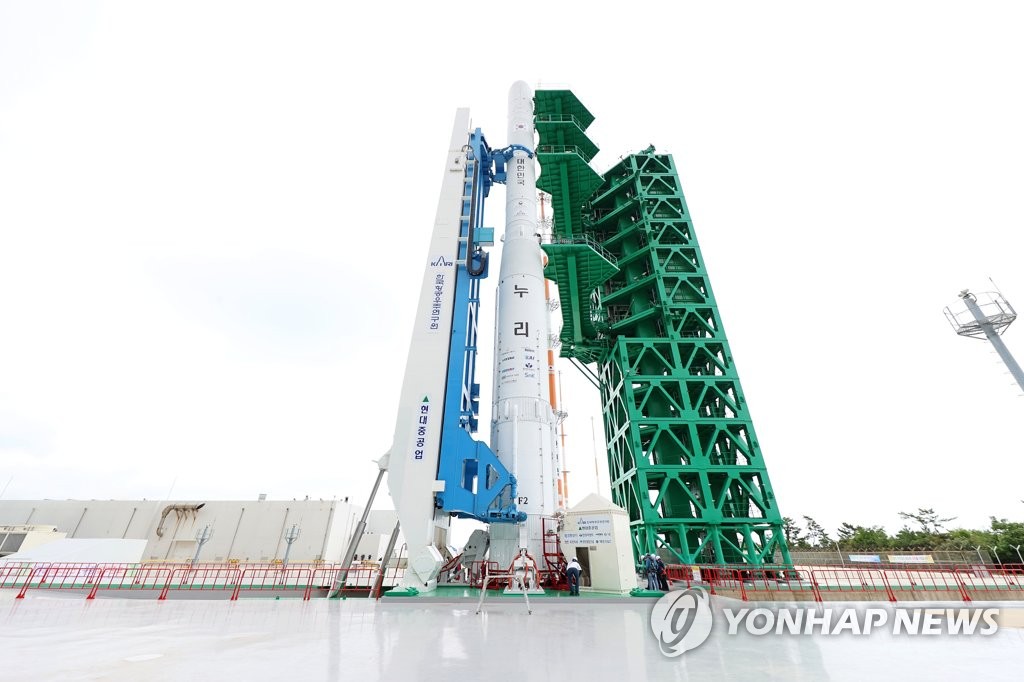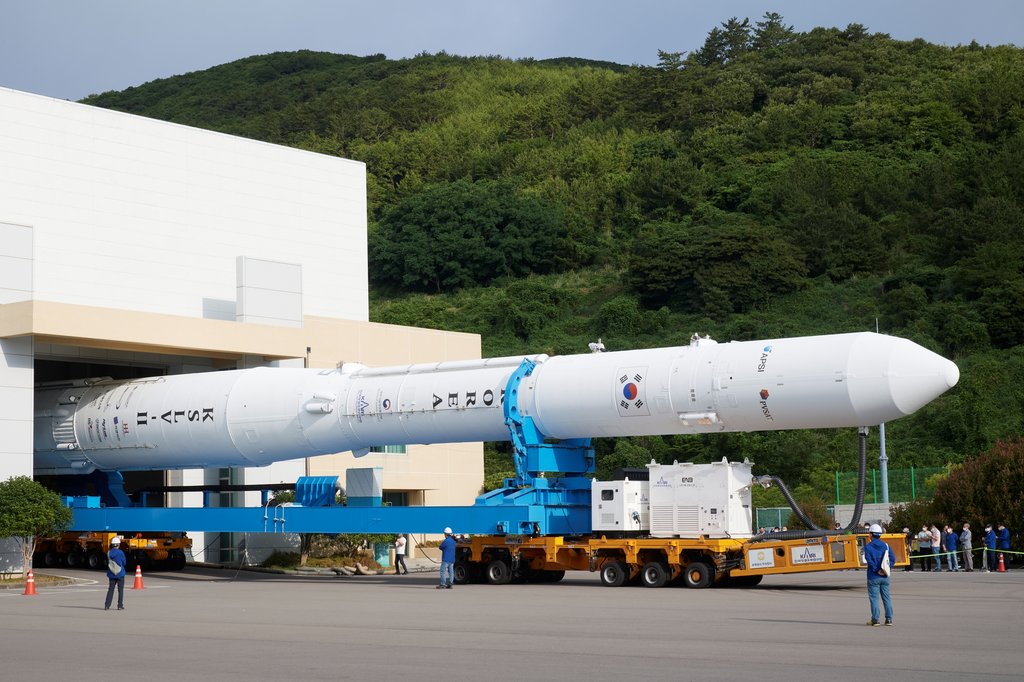- California Assembly OKs highest minimum wage in nation
- S. Korea unveils first graphic cigarette warnings
- US joins with South Korea, Japan in bid to deter North Korea
- LPGA golfer Chun In-gee finally back in action
- S. Korea won’t be top seed in final World Cup qualification round
- US men’s soccer misses 2nd straight Olympics
- US back on track in qualifying with 4-0 win over Guatemala
- High-intensity workout injuries spawn cottage industry
- CDC expands range of Zika mosquitoes into parts of Northeast
- Who knew? ‘The Walking Dead’ is helping families connect
S. Korea indefinitely postpones launch of space rocket over technical glitch
South Korea on Wednesday postponed the launch of homegrown space rocket Nuri, as a sensor in the oxidizer tank showed irregularities, just one day ahead of the scheduled liftoff.
The Korea Aerospace Research Institute (KARI) will transport Nuri back to the assembly building for technical review from the launch pad at Naro Space Center in Goheung, a southern coastal village some 470 kilometers south of Seoul, officials said.
“Trying to verify the problem with the rocket erected was difficult, hence we determined that proceeding with the launch preparation was impossible under the current situation,” a KARI official said.
The official said a new launch date should be decided after the cause of the problem is identified and fixed.
According to KARI, readings of the oxidizer tank sensor normally change when the rocket is being erected. Readings on Nuri’s sensor, however, did not show any change during the process.


This photo provided by the Korea Aerospace Research Institute on June 15, 2022, shows South Korean space rocket Nuri erected at the launch pad at Naro Space Center in Goheung, some 470 kilometers south of Seoul. (PHOTO NOT FOR SALE) (Yonhap)
“The sensor itself could be problematic, or it could be an issue with the cable or the terminal box,” the official said.
South Korea had initially planned to launch the rocket Wednesday in a mission to put multiple satellites into orbit, but it had been delayed by a day due to strong winds.
Nuri this time will be loaded with a 162.5-kilogram performance verification satellite to test the rocket’s capabilities and four cube satellites developed by four universities for academic research purposes, along with a 1.3-ton dummy satellite.
In its first attempt in October, Nuri successfully flew to a target altitude of 700 kilometers but failed to put a dummy satellite into orbit, as its third-stage engine burned out earlier than expected.
South Korean aerospace engineers reinforced an anchoring device of the helium tank inside Nuri’s third-stage oxidizer tank.
South Korea has invested nearly 2 trillion won (US$1.8 billion) in building Nuri since 2010. The project was carried out with domestically made technology on its own soil, including design, production, testing and launch operation.
The country plans to conduct four additional Nuri rocket launches by 2027 as part of efforts to further advance the country’s space rocket program.











